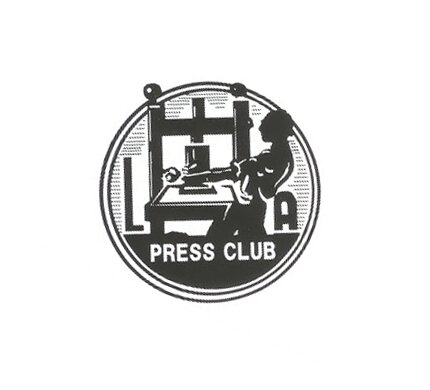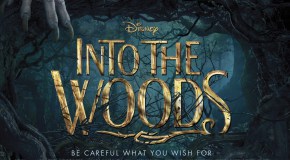 Dramatic, comedic, documentary
Dramatic, comedic, documentary
ZFF announces first Gala Premieres
Zurich, August 14, 2014
The 10th Zurich Film Festival (ZFF) announces its first Gala Premieres: The drama MANGLEHORN by David Gordon Green, the tragicomedies BIRDMAN by Alejandro González Iñárritu and MY OLD LADY by Israel Horovitz, the documentary film NATIONAL GALLERY by Frederick Wiseman, the dramas THE CUT by Fatih Akin and LE MERAVIGLIE by Alice Rohrwacher as well as the music drama WHIPLASH by Damien Chazelle.
MANGLEHORN
David Gordon Green
US director David Gordon Green, who presented his film JOE at last year’s Zurich Film Festival, attends again this year with the moving drama MANGLEHORN. AJ Manglehorn is tormented by the memories of the woman of his dreams. He still suffers from the fatal decision he made forty years previously, when he risked losing the love of his life, Clara, over one last ‚job’ – and ended up with a long-term jail sentence. Now living in a small town, the lonely man endeavours to build a new life for himself, and goes about his work as a locksmith, takes care of his cat, eats everyday at the same joint and chats every Friday to the same bank clerks – an apparently normal life. But Mangelhorn cannot ignore his deeply wounded psyche. He still writes letters to his old love in the hope that one day he will see her again. But it’s only a new acquaintance that can help Manglehorn put the pieces of his heart back together.
————————————————————————————————————————————–
BIRDMAN
Alejandro González Iñárritu
Two-time Oscar nominated director and Golden Eye Award winner at Zurich Film Festival 2011 Alejandro González Iñárritu (BABEL and BIUTIFUL) leads us with his comic-inspired feature film starring former BATMAN star Michael Keaton through the world of superhero mania. One-time star actor Riggan Thomson (Michael Keaton), famous for his portrayal of the iconic superhero Birdman, has hit on hard times, both financially and personally. He intends to claw back his previous success by working on a new Broadway project. In the three days leading up to the opening night, he ends up in all manner of conflicts – be it with the piece’s neurotic leading actor (Edward Norton), or his daughter (Emma Stone). He has very little time to get his private life, his professional life and his mental health back in order.
————————————————————————————————————————————–
MY OLD LADY
Israel Horovitz
US dramatist Israel Horovitz delights with this equally warm and witty comedy. Mathias (Kevin Kline) is skint. And the death of this downtrodden ’s estranged father seems heaven-sent when he discovers he has inherited a large apartment in Paris. However, Mathias finds to his great annoyance that somebody else is already living there: Mathilde (Maggie Smith), a cultivated old lady who claims to be a contractually agreed life-long resident. Mathias, whose intention it was to liquidise his asset as soon as possible, is powerless to do anything. Reluctantly, he must now come to terms with not just Mathilde, but also her sharp-tongued daughter Chloé (Kristin Scott Thomas), who keeps an ever-protective eye on her mother. While discussing his options with an estate agent, Mathias discovers that the old lady was not just a tenant, but also the love of his father’s life for more than fifty years.
————————————————————————————————————————————–
NATIONAL GALLERY
Frederick Wiseman
NATIONAL GALLERY is a documentary film by director Frederick Wiseman, one of the most important pioneers of the genre Direct Cinema. What do the pictures of Titian and William Turner, Caravaggio and Van Gogh teach us today? How are these masterpieces conveyed to audiences? What goes on behind the scenes of a museum establishment, and how is such an institution marketed? Master director Frederick Wiseman spent twelve weeks in 2012 at the . Wiseman shows us in his Direct Cinema style what he as a viewer in the museum observes: Extraordinary close-ups of great art works, and everything else that goes into making a museum – the visitors and their view of the pictures; guided tours, lectures, concerts; curators, arts organisers, museum directors and marketing specialists busy at work. NATIONAL GALLERY is both a film about art and it’s power, and a portrait of a remarkable institution.
————————————————————————————————————————————–
THE CUT
Fatih Akin
Mardin, 1915: One night, the Turkish gendarmerie rounded up all Armenian men. The young blacksmith Nazaret Manoogian is also separated from is family. After managing to escape the horror of genocide, he receives news years later that his twin daughters have also survived. Obsessed by the thought of a reunion, he sets out to trace them. The trail takes him from the deserts of Mesopotamia, across Havana to the barren and isolated prairies of North Dakota. He meets many different people on his odyssey: From angelic and benevolent characters to the devil incarnate. THE CUT is the final episode of Fatih Akin’s trilogy “Love, Death and the Devil”. The term ‘devil’ is assigned to THE CUT because the film deals the evil in Man and includes that which is done to others – whether unconsciously or deliberately. The last part of this trilogy is characterized by Fatih Akin’s view of the world: “THE CUT has become a very personal film, its content deals with my conscience and its form with my love of cinema”.
————————————————————————————————————————————–
LE MERAVIGLIE
Alice Rohrwacher
LE MERAVIGLIE casts a sensitive eye over a childhood in the countryside; the drawbacks, and most of all, the small wonders that such a life brings. Twelve-year-old Gelsomina basically calls the shots in her family. For her quiet father, she is the future queen of a small kingdom he has built up over the years. This patchwork family gets by on beekeeping in the middle of nowhere in northern Italy. It is an extraordinary summer, and the strict rules that have held the family together until now are starting to melt. First of all, Martin turns up, a peculiar German boy on a reintegration programme. Then Gelsomina hears of a TV show that the family has just got to apply to appear on… Alice Rohrwacher’s impressive second feature garnered the Grand Jury Prize at Cannes.
————————————————————————————————————————————–
WHIPLASH
Damien Chazelle
In the fast-paced drama WHIPLASH, Damien Chazelle makes the devotion to music almost tangible, questions, however, how much passion a person can handle. Nineteen-year-old drummer Andrew (Miles Teller) wants to be more than just a musician. His greatest role model is no other than jazz legend Buddy Rich. During his first year at an elite music school in Manhattan, Andrew catches the attention of the infamous music teacher Terence Fletcher (J.K. Simmons), who invites him to join his jazz band. Lessons with Fletcher are his best chance of success – but also the most difficult part of his training. This brutal perfectionist pushes the young musician to his physical and mental limits. Andrew’s dream is tested to breaking point. But Fletcher sees the potential in this talented young man and refuses to let up – he will either break or make it.



































